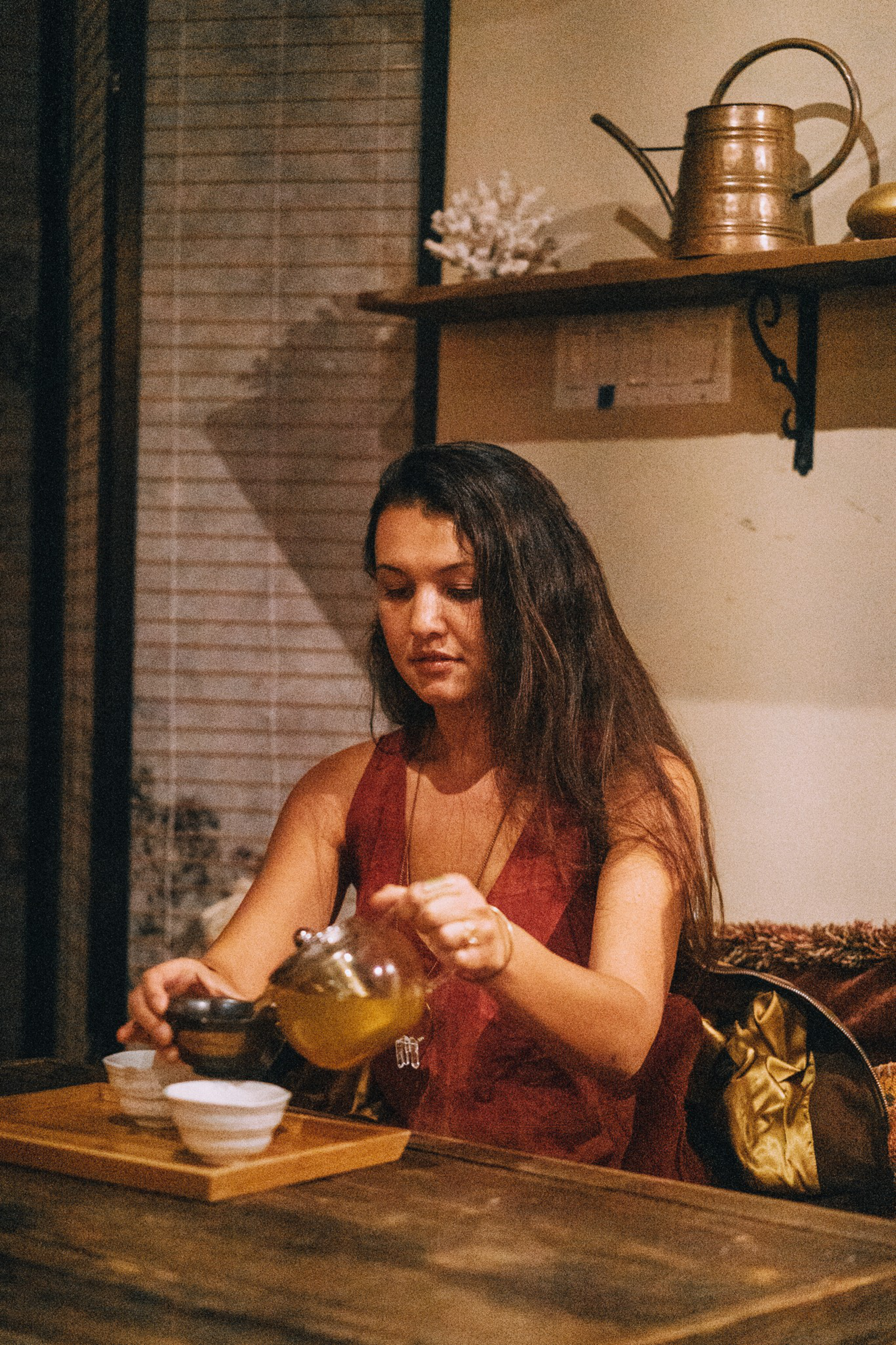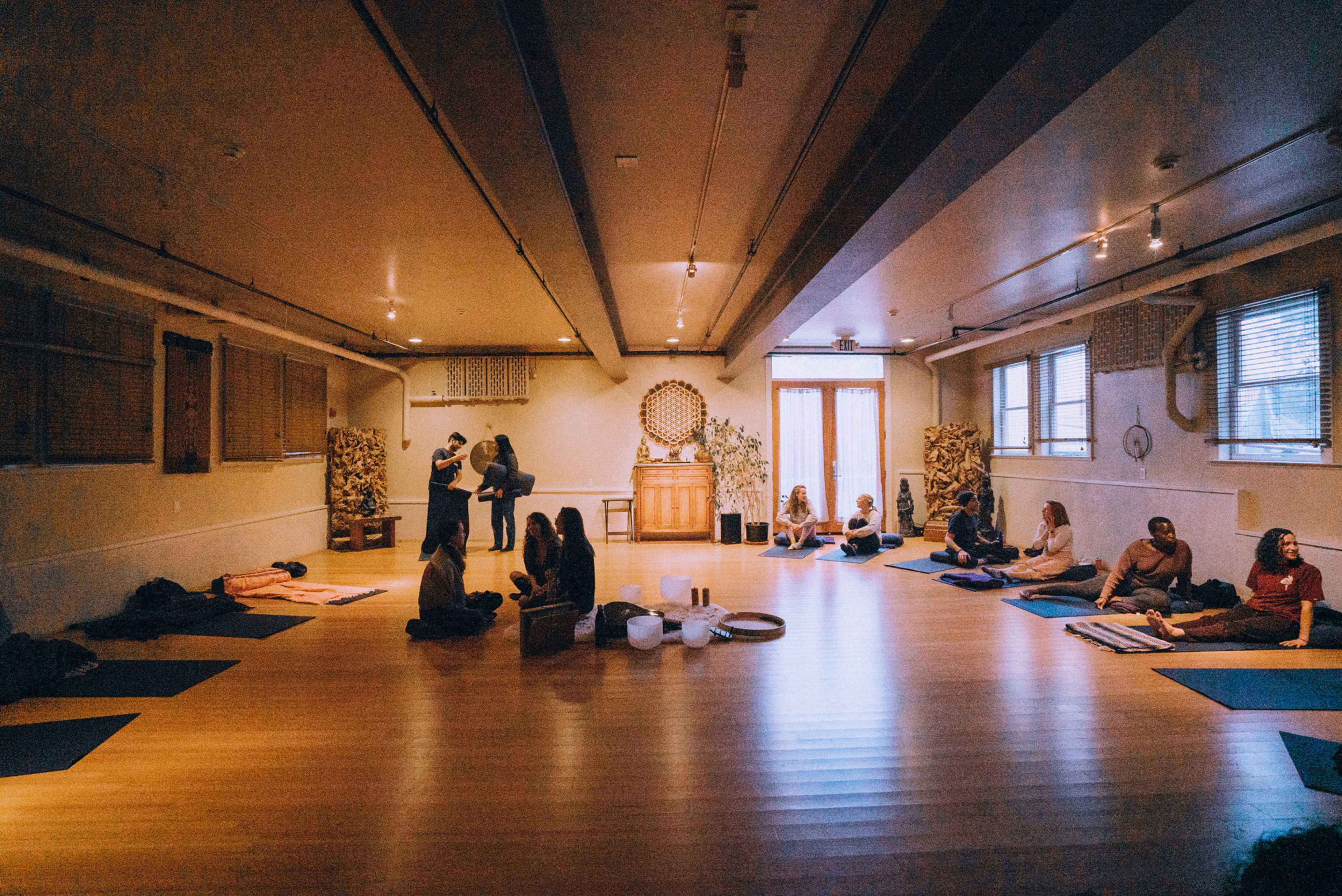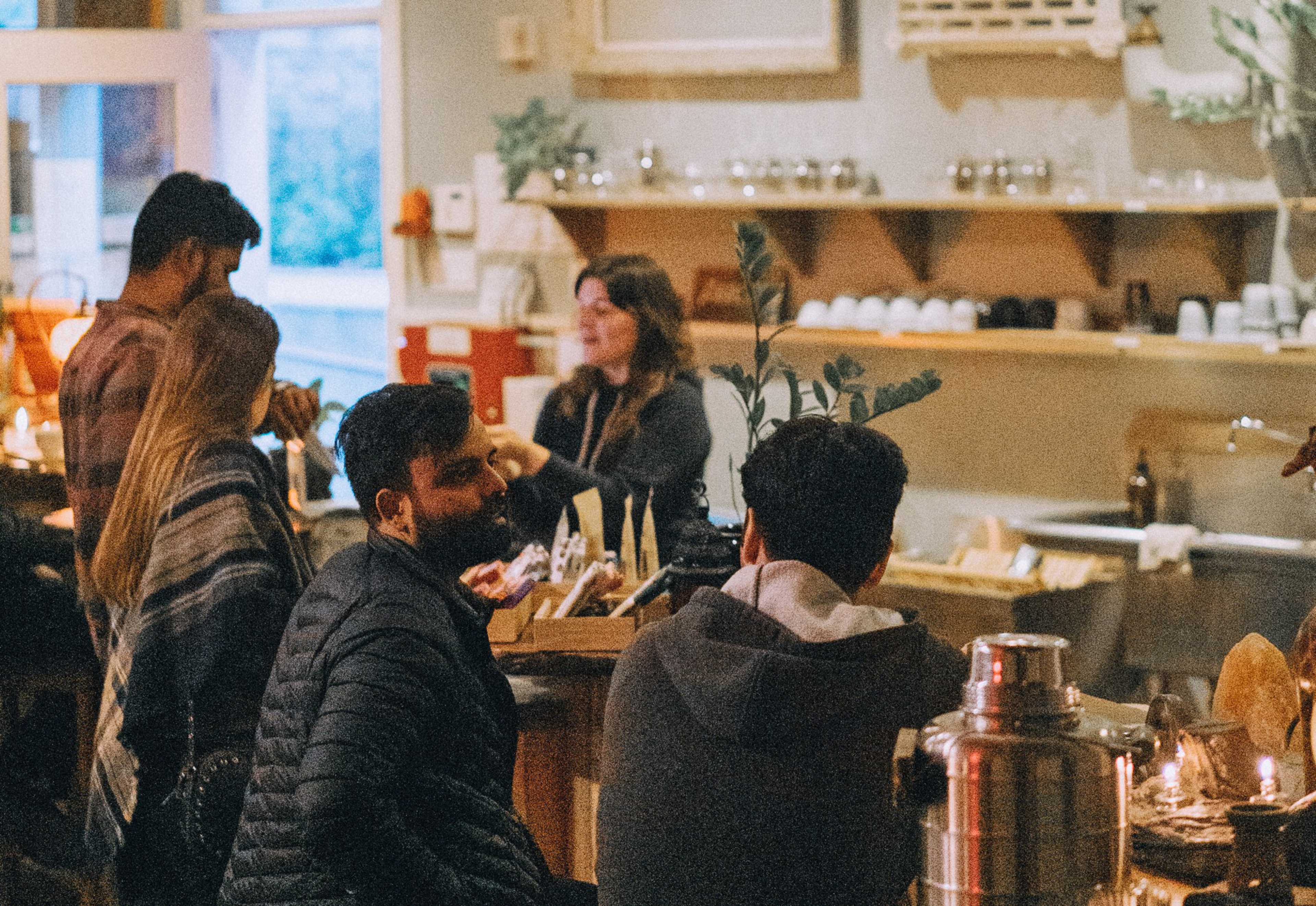The Center (opens in new tab), tucked next to The Church of 8 Wheels in the Lower Haight, embodies a certain type of Burning Man-adjacent San Francisco spiritualism, combining “intentional living (opens in new tab)” with a wide range of classes and events.
When you Google it, the space’s first descriptor is a “magical tea house”—but that part of its offerings is currently in flux. The popular hub for coworking and events like (opens in new tab) ecstatic dance, breathwork and yoga classes has run afoul of the city’s permitting process over its volunteer-run tea service.
Since launching in 2016 at 548 Fillmore St., The Center has become a place for techies, artists and spiritual practitioners alike to gather for both organized and impromptu socializing. Its teahouse has long sold drinks like kava and cacao, as well as a wide variety of tea—though, apparently, not with the proper permits and safety standards.

After the health department conducted a routine inspection of The Center in 2021, it found that the organization didn’t have an appropriate permit for its snack and beverage sales. The city’s extensive permitting process requires food safety certifications, as well as equipment like a handwashing station and the use of specific building materials in order to serve food and drinks. For example, The Center would need to revamp its plumbing and upgrade its walls to achieve compliance. Meanwhile, the Planning Department informed The Center that its business activities also didn’t match the zoning of its property.
While The Center’s back-and-forth with the city moved slowly during those relatively early days of the pandemic, the pressure has recently ratcheted up, and the teahouse stopped selling tea in May. Its leaders predict that it could require about $50,000 and several months of renovations to bring the tea bar up to code, according to one of its co-owners, Danny Kaufman.

“We want to comply with the city and it’s really expensive to do so, so we’re trying to figure it out,” Kaufman said.
For now, it has drastically scaled down its offerings to meet the city’s definition of providing complementary incidental food (opens in new tab), which allows businesses to give away simple snacks and drinks without a health permit. The goal is to keep the space operational as leadership figures out its path forward, Kaufman added.
“The Center is really this urban oasis where, for almost a decade, people have come to connect with themselves, connect with each other, and have respite in the middle of the city,” he said. “I think it holds a really unique place in the city of San Francisco, both in the kind of events and workshops that happen here, but also the kind of community that’s built here.”
The Center needs conditional use authorization (opens in new tab) to run events and its beverage business in a residential district. Currently, “none of The Center’s activities—food, beverage, entertainment, institutional—are properly permitted,” Planning Department spokesperson Dan Sider told The Standard via email. “We’ve been trying to help them remedy this for the last three years.”

The Center submitted a partially complete application (opens in new tab) for a community facility in late February, Sider added. The Planning Department is now waiting for the rest of the materials to schedule a Planning Commission hearing and move the application forward.
The Center has remained open throughout, as the city allows companies to continue operating during the application process as long as they make “good-faith efforts to obtain the required permits,” Sider said.
While the sheer amount of red tape required to operate a small business in San Francisco is well-documented, The Center’s struggle to move forward with the city also reflects the tension it feels between balancing its community ethos and running a sustainable business, Kaufman said.
“We do this because we love it—we’ve never done this to make money,” he said. “Our whole intention is to keep the space alive at a time when San Francisco, over the past decade, has changed so much, and where third spaces are really hard to operate without having a strong profit incentive. That’s always been the struggle.”

As the group scrambled to adjust to its new reality, some of its communication with volunteers and visitors has been spotty, according to a brainstorming document reviewed by The Standard. The document makes references to leadership being in “panic mode” to find a solution to the city’s requirements.
Recently, though, staff has made it clear to volunteers that they’re dedicated to remaining open, according to a note seen by The Standard: “The key thing is that The Center is not closing—please share this with the community if they ask—but the container is most definitely changing.”
The teahouse will be closed to the public until June 10, but Kaufman called for people to keep showing up and supporting the space through its classes, open mics or dance nights.
“The Center is still very much open: We’re still hosting events and workshops, and we’re still welcoming people,” he said. “And we’d love to see you.”
